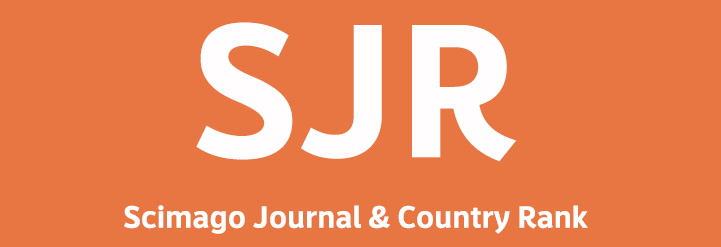A Techno-Economic Approach To Optimizing CCS Fiscal Parameters In Indonesia: A Case Study Of Integrated Oil And Gas Development In CO₂-Rich Areas
Keywords:
Net zero emission, carbon capture and storage, CO₂ injection, production sharing contract, storage feeAbstract
This study introduces a techno-economic approach to optimizing storage fees for CCS integrated with oil and gas development. The analysis adopts the production sharing contract cost recovery model in accordance with the implementation of Ministerial Regulation of Energy and Mineral Resources No. 16 of 2024, which addresses CCS-related parameters. Technical assessment confirms the studied reservoir’s suitability for long-term CO₂ injection through 5 injection wells, while oil and gas development are supported by 10 oil wells and 8 gas wells. The project’s economic viability under baseline conditions shows an IRR of 10.14% and POT of 15.73 years. Sensitivity analysis across fiscal parameters, such as investment credit, FTP, contractor split, CCS service fee and storage fee, CAPEX, royalty, and tax, identifies the storage fee as the most influential factor for viability. To achieve a commercially viable IRR of 15%, the project requires a minimum CCS service fee of 55 US$/MT and a storage fee of at least 35 US$/MT. The study underscores the need for clear regulations on fiscal incentives, CO₂ pricing, storage fees, and PSC integration to enhance CCS economic viability, while also offering a replicable framework for CO₂ assessments under dynamic fiscal regimes.
References
International Energy Agency. (2023). CO₂ emissions in 2022 – Analysis. https://www.iea.org/reports/CO₂-emissions-in-2022.
Intergovernmental Panel on Climate Change. (2022). Climate change 2022: Mitigation of climate change. Contribution of Working Group III to the Sixth Assessment Report of the Intergovernmental Panel on Climate Change. Cambridge University Press. https://www.ipcc.ch/report/ar6/wg3/
Global CCS Institute. (2023). Global status of CCS 2023. https://www.globalccsinstitute.com/resources/global-status-report/
International Energy Agency. (2021). Carbon pricing and policy design. https://www.iea.org/reports/carbon-pricing
Zakkour, P., & Cook, G. (2020). Addressing the cost of carbon capture, utilisation and storage. Global CCS Institute. https://www.globalccsinstitute.com/
Kementerian Energi dan Sumber Daya Mineral Republik Indonesia. (2024). Peraturan Menteri Energi dan Sumber Daya Mineral Republik Indonesia Nomor 16 Tahun 2024 tentang Penyelenggaraan Kegiatan Penyimpanan Karbon pada Wilayah Izin Penyimpanan Karbon dalam Rangka Kegiatan Penangkapan dan Penyimpanan Karbon. https://jdih.esdm.go.id/
Mardiana, D.A., Rakhmanto, P.A., Riswati, S.S., Sofilda, E., Aribawa, S. & Martines, G., 2024, Petroleum Fiscal Regimes Attractiveness in Indonesia, Malaysia and Thailand: Application on Offshore Project Development. Scientific Contributions Oil & Gas Vol 47 No. 3, 256-276. https://doi.org/10.29017/SCOG.47.1.1613
Prasandi, A. A., Rachmat, M., Chandra, S., Daton, W. N., & Tony, B. (2023). Techno-economic solution for extending CCUS application in natural gas fields: A case study of B gas field in Indonesia. Scientific Contributions Oil and Gas, 46(1), 19–28. https://doi.org/10.29017/SCOG.46.1.1321
Lubiantara, Benny, 2012. Ekonomi Migas-Tinjauan Aspek Komersial Kontrak Migas, PT.Gramedia Widiasarana Indonesia, Jakarta.
Lubiantara, Benny, 2007. The Analysis of the Marginal Field Incentive - Indonesian Case. OGEL (Oil, Gas & Energy Law Intelligence), Vol 5.
Partowidagdo, Widjajono, 2001. Evaluasi kontrak perminyakan di Indonesia, Jurnal Teknologi Mineral (JTM), Institut Teknologi Bandung, Bandung.
Partowidagdo, Widjajono, 2002. Manajemen dan Ekonomi Minyak dan Gas Bumi, Institut Teknologi Bandung, Bandung.
Published
Issue
Section
License

This work is licensed under a Creative Commons Attribution 4.0 International License.
Authors are free to Share — copy and redistribute the material in any medium or format for any purpose, even commercially Adapt — remix, transform, and build upon the material for any purpose, even commercially.
The licensor cannot revoke these freedoms as long as you follow the license terms, under the following terms Attribution — You must give appropriate credit , provide a link to the license, and indicate if changes were made . You may do so in any reasonable manner, but not in any way that suggests the licensor endorses you or your use.
No additional restrictions — You may not apply legal terms or technological measures that legally restrict others from doing anything the license permits.















